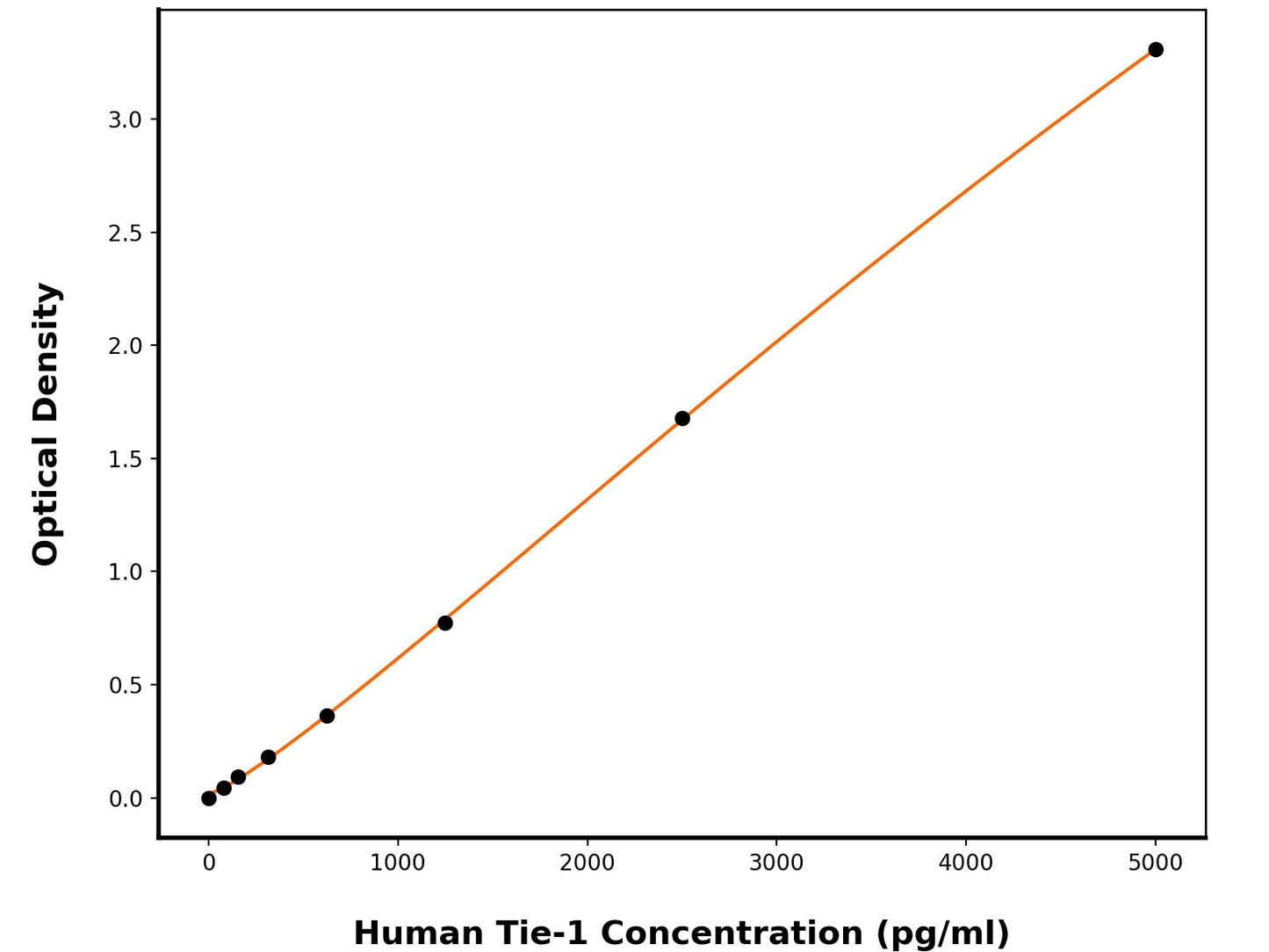1
/
of
1
Human Tyrosine-Protein Kinase Receptor Tie-1 (TIE1) ELISA Kit
Human Tyrosine-Protein Kinase Receptor Tie-1 (TIE1) ELISA Kit
This ELISA kit is designed to detect Human Tyrosine-Protein Kinase Receptor Tie-1 (Human TIE1). The assay plate has been pre-coated with mouse anti-Human Tie-1 monoclonal antibody. When the sample containing Tie-1 is added to the plate, it binds to the antibodies coated on the wells. Then, a horseradish peroxidase conjugated mouse anti-Human Tie-1 Antibody is added to the wells and binds to Tie-1 in the sample. After washing the wells, substrate solutions are added, and the color intensity is directly proportional to the amount of Human Tie-1 present. The reaction is stopped by adding an acidic stop solution, and the absorbance is measured at 450 nm.
Catalog No:
BPE098
Regular price
$624.00 USD
Regular price
$480.00 USD
Sale price
$624.00 USD
Unit price
/
per
2 weeks
Couldn't load pickup availability
Product Details
Species Reactivity
Human
Sensitivity
22.2 pg/mL
Detection Range
78.13-5000 pg/mL
Sample Type
Serum, plasma, cell culture supernates
Incubation(s)
3.5 hour(s)
Research Areas
Cardiovascular, Developmental Biology, Signal Transduction, Stem cells, Cancer
Background
Tyrosine kinase with immunoglobulin-like and EGF-like domains 1 also known as Tie1 is an angiopoietin receptor and is an orphan receptor tyrosine kinase that is expressed almost exclusively in endothelial cells and that is required for normal embryonic vascular development. The receptor tyrosine kinase Tie1 is expressed primarily in vascular endothelial cells. The receptor has also been detected in epithelial tumours in breast, thyroid and gastric cancers and in tumour cell lines where it appears as a 45 kDa truncated receptor fragment. Tie1 promotes endothelial cell survival, but other studies have suggested that the Tie1 kinase has little to no activity. Embryos deficient in Tie1 failed to establish structural integrity of vascular endothelial cells, resulting in oedema and subsequently localized haemorrhage. Tie1 is significantly higher in human aortic endothelial cells than in human umbilical vein endothelial cells. Additionally, attachment of cells of monocytic lineage to endothelial cells is also enhanced by Tie1 expression. Collectively Tie1 has a proinflammatory property and may play a role in endothelial inflammatory diseases such as atherosclerosis.
Shipping Condition
Shipped on cold gel packs.
Storage Condition and Shelf Life
This product can be stored at 2-8C.
Analyte
Tyrosine-protein kinase receptor Tie-1
Regulatory Status
For Research Use Only

